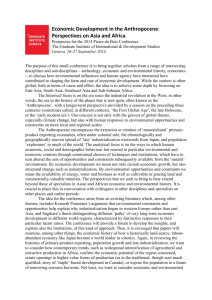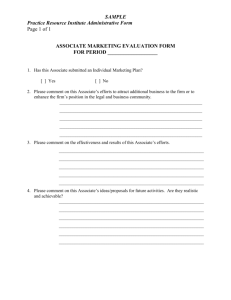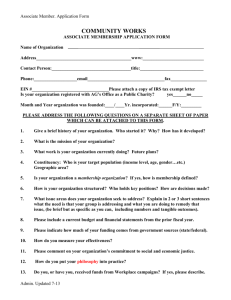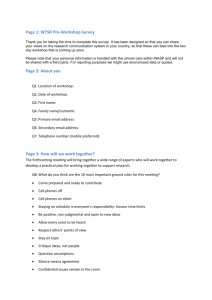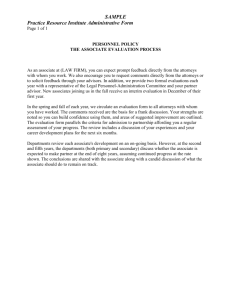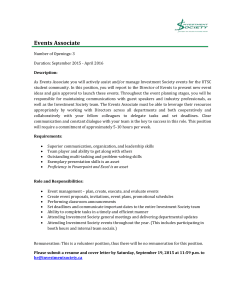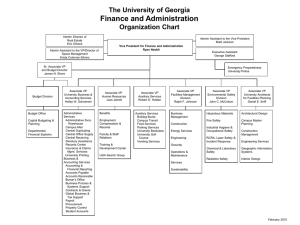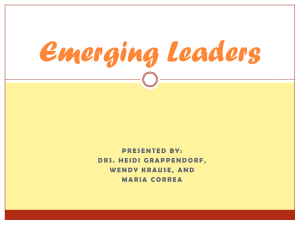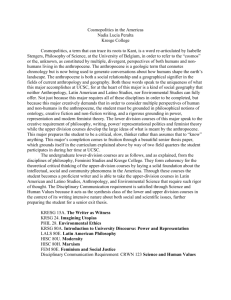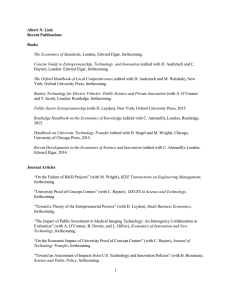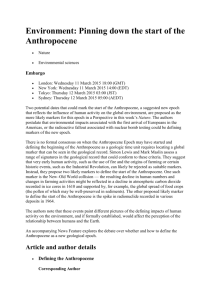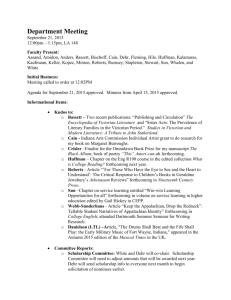Table Topic Descriptions
advertisement
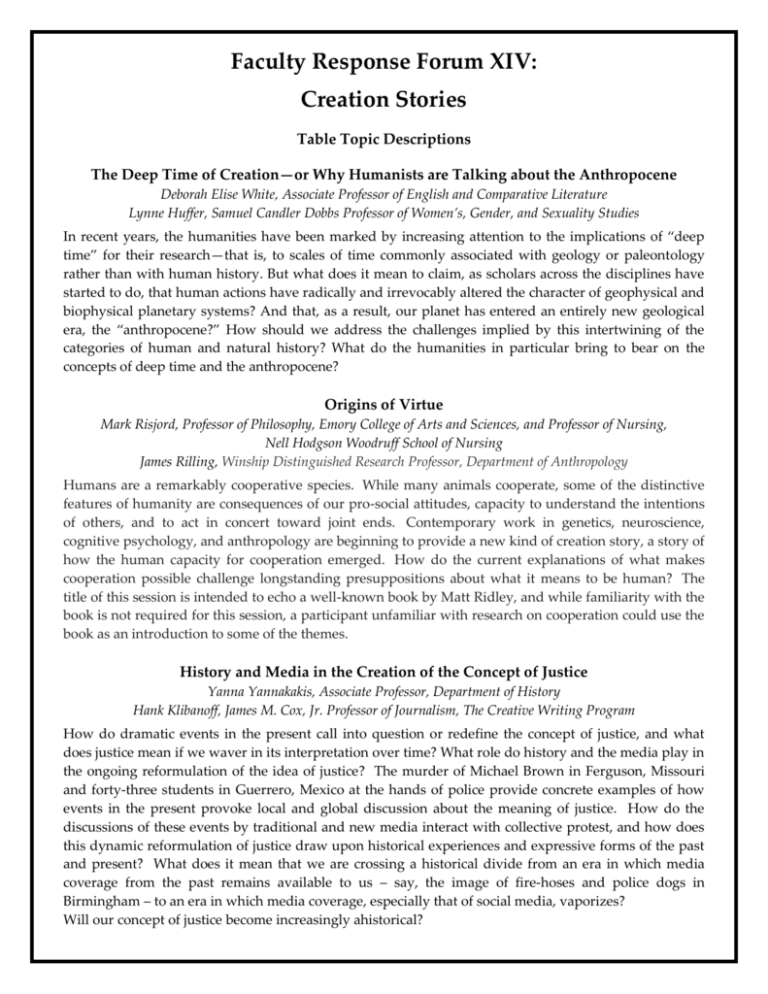
Faculty Response Forum XIV: Creation Stories Table Topic Descriptions The Deep Time of Creation—or Why Humanists are Talking about the Anthropocene Deborah Elise White, Associate Professor of English and Comparative Literature Lynne Huffer, Samuel Candler Dobbs Professor of Women’s, Gender, and Sexuality Studies In recent years, the humanities have been marked by increasing attention to the implications of “deep time” for their research—that is, to scales of time commonly associated with geology or paleontology rather than with human history. But what does it mean to claim, as scholars across the disciplines have started to do, that human actions have radically and irrevocably altered the character of geophysical and biophysical planetary systems? And that, as a result, our planet has entered an entirely new geological era, the “anthropocene?” How should we address the challenges implied by this intertwining of the categories of human and natural history? What do the humanities in particular bring to bear on the concepts of deep time and the anthropocene? Origins of Virtue Mark Risjord, Professor of Philosophy, Emory College of Arts and Sciences, and Professor of Nursing, Nell Hodgson Woodruff School of Nursing James Rilling, Winship Distinguished Research Professor, Department of Anthropology Humans are a remarkably cooperative species. While many animals cooperate, some of the distinctive features of humanity are consequences of our pro-social attitudes, capacity to understand the intentions of others, and to act in concert toward joint ends. Contemporary work in genetics, neuroscience, cognitive psychology, and anthropology are beginning to provide a new kind of creation story, a story of how the human capacity for cooperation emerged. How do the current explanations of what makes cooperation possible challenge longstanding presuppositions about what it means to be human? The title of this session is intended to echo a well-known book by Matt Ridley, and while familiarity with the book is not required for this session, a participant unfamiliar with research on cooperation could use the book as an introduction to some of the themes. History and Media in the Creation of the Concept of Justice Yanna Yannakakis, Associate Professor, Department of History Hank Klibanoff, James M. Cox, Jr. Professor of Journalism, The Creative Writing Program How do dramatic events in the present call into question or redefine the concept of justice, and what does justice mean if we waver in its interpretation over time? What role do history and the media play in the ongoing reformulation of the idea of justice? The murder of Michael Brown in Ferguson, Missouri and forty-three students in Guerrero, Mexico at the hands of police provide concrete examples of how events in the present provoke local and global discussion about the meaning of justice. How do the discussions of these events by traditional and new media interact with collective protest, and how does this dynamic reformulation of justice draw upon historical experiences and expressive forms of the past and present? What does it mean that we are crossing a historical divide from an era in which media coverage from the past remains available to us – say, the image of fire-hoses and police dogs in Birmingham – to an era in which media coverage, especially that of social media, vaporizes? Will our concept of justice become increasingly ahistorical? Creating "Common Sense": How Organizations of All Kinds Get People to Think Stuff Is Normal, and What You Can Do About It Julia Bullock, Associate Professor of Japanese Language and Culture From office politics to shared cultural assumptions, human societies large and small tend to rely on some set of collectively agreed-upon "common sense" principles that define what is or is not presumed to be "normal." Is this necessarily a bad thing? How do principles become normative, and how can norms be negotiated or challenged when they become oppressive, or simply no longer functional? What possibilities and perils accompany attempts to question such "common sense"? For the purpose of this discussion, norms may be understood to take many forms—political, cultural, organizational, linguistic, sexual, etc. Dream On: Narrative Creativity and the Dreaming Brain Allen Tullos, Professor of History and Co-Director of Emory Center for Digital Scholarship Cynthia Blakeley, Instructor in The Graduate Institute of the Liberal Arts description forthcoming… Creating Stories with Visual and Digital Research Cathryn Johnson, Senior Associate Dean, Laney Graduate School and Professor of Sociology Anna Grimshaw, Professor, The Graduate Institute of the Liberal Arts description forthcoming… The Creation of a Rights-Based Society Carol Anderson, Associate Professor of African American Studies and History Joe Crespino, Professor of History description forthcoming… Creation/Narration: How Ideas in Science and Art Converge in Imagination Leslie Taylor, Director of the Center for Creativity & Arts and Professor of Theater and Dance description forthcoming… Creative Disclosure Thomas Flynn, Samuel Candler Dobbs Professor of Philosophy description forthcoming…
